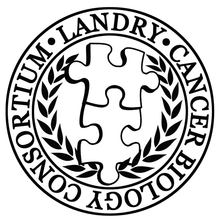FIRST PRIZE
Georgia Stirtz | G4
Biological and Biomedical Sciences
Leonard Zon lab
Tumor Microenvironmental Regulation of T cell Infiltration
The advent of immune checkpoint blockade (ICB) has greatly improved survival rates for melanoma patients, yet 40% of patients are unresponsive. Research has demonstrated that tumor-infiltrating lymphocytes are a predictor of response to ICB and increased survival. Therefore, developing strategies to increase T cell infiltration has strong therapeutic potential. Our lab developed a zebrafish reporter that labels CD8+ T cells and used this reporter to visualize tumor-immune interactions in endogenous, nonpigmented melanomas. Using an approach of longitudinal, intravital microscopy to visualize T cell infiltration within the same tumor across development, I identified progressive stages of T cell infiltration and found that CD8+ T cells preferentially infiltrate within clefts in the surface of the tumor. These clefts are commonly adjacent to cxcl12a+ vessels and stromal cells. Single-cell RNA-sequencing of cxcl12a+ stromal cells revealed a cancer-activated stromal population that expresses genes found to correlate with T cell infiltration in human melanomas. I am functionally evaluating these candidate genes in vivo by knockout and overexpression for an effect on T cell infiltration. These experiments will advance understanding of the mechanisms underlying the anti-tumor response to allow for the development of therapeutics to induce T-cell infiltration and expand the population of responders to ICB.

SECOND PRIZE
Shikha Sheth | G6
Biological and Biomedical Sciences
Kevin Haigis lab
Understanding resistance to Kras-G12C inhibitors in colorectal cancer (CRC)
Although mutations in the Kras oncogene are frequent across cancers, they have historically been difficult to target directly. Recent studies have led to the development of inhibitors targeting Kras-G12C mutant cancers (G12Ci), and though these inhibitors are effective against lung tumors, patients with colon tumors do not respond as well. It is not entirely clear what accounts for the differential response in lung and colon tumors, and we believe that the underlying biological processes inherent to colon tumors-but not lung-can contribute to the intrinsic resistance seen in colon tumors. Specifically, loss of Apc and consequent activation of Wnt signaling is very common in colorectal cancer (CRC), and these mutations are rare in lung cancer. We hypothesize that activation of Wnt signaling contributes to intrinsic resistance to G12Ci in colon tumors. Using mouse colon organoids, we evaluate the effect of Apc loss in a Kras-G12C mutant background on response to G12Ci. Our preliminary findings indicate that loss of Apc increases resistance to G12Ci, and that co-treatment of Apc-mutant organoids with a Wnt inhibitor increases sensitivity to G12Ci. Altogether, these studies underscore the importance of understanding tissue context when targeting the same pathway in different tumors, which will hopefully aid in the development of improved drug treatments and combinations.
THIRD PRIZE
Alissandra Hillis | G3
Biological and Biomedical Sciences
Alex Toker lab
Identifying synthetic lethal combination therapies with PI3K/AKT inhibitors in TNBC
The phosphoinositide-3-kinase (PI3K) pathway is hyperactivated in almost all human cancer types, promoting cell growth and survival. Triple negative breast cancer (TNBC) is a highly heterogeneous disease with poor prognosis and limited targeted therapies. Among the few common genetic features in TNBC is PI3K pathway hyperactivation, which occurs in greater than 50% of TNBC cases. PI3K/AKT inhibitors have been developed to treat PI3K pathway-mutant cancers, but they have been generally ineffective as monotherapies due to the presence of other oncogenic mutations in heterogeneous tumors, the development of acquired resistance, or on-target toxicities. However, in 2019, the PI3Ka-selective inhibitor, BYL719, was approved, in combination with hormone therapy, for the treatment of estrogen receptor-positive, PIK3CA-mutant breast cancer. This motivates developing additional combination therapies with PI3K/AKT inhibitors in other cancer types. I hypothesize that PI3K/AKT inhibitors can effectively treat PI3K pathway-mutant TNBC, if synthetic lethal drug combinations are identified. With the myriad of potential anti-cancer drug combinations available, it is difficult to predict which combinations will be effective. To identify effective drug combinations, I performed a genome-wide negative selection CRISPR screen with PI3K/AKT inhibitors in TNBC. This work aims to advance the treatment of TNBC by identifying targetable vulnerabilities in this heterogeneous disease.


